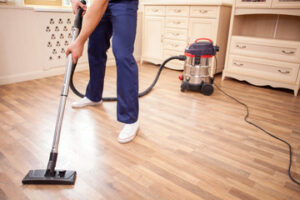Residential Quality Cleaning is a multibillion-dollar industry. However, many cleaning companies that attempt to expand into commercial cleaning fail from the start.

Homeowners trust a residential cleaner to come into their private homes and touch their personal belongings. They want their homes to be cleaned properly, including tough areas like ceiling fans and behind furniture.
Residential cleaners may work for a cleaning company or be self-employed. In either case, they need to have a thorough knowledge of cleaning procedures for every surface in the building they are cleaning. This includes the use of chemicals on a variety of surfaces as well as proper disposal techniques for hazardous waste. Cleaning technicians should also understand that soils such as coffee, Kool-Aid, lipstick, food, blood, and urine can cause permanent damage to certain surfaces if not cleaned properly.
Equipment
Residential cleaning is a multibillion-dollar industry and offers an excellent opportunity to build an excellent business. Start-up investment and equipment costs are low, and a successful residential cleaner can make a good living. Residential cleaners are responsible for a variety of tasks, including dusting, sweeping, mopping, and washing floors, bathtubs, showers, toilets, and sinks. They are also required to vacuum and clean carpets and sweep and scrub countertops. They must have great stamina and a strong work ethic to perform these duties on a regular basis.
Residential clients tend to be pickier than commercial clients and require a more detailed job. They may be concerned about stains on the furniture or floor and will often want you to re-clean areas they think are not as clean as they should be. In addition, they are typically more sensitive to the fact that you are working in their personal space and may feel as though they can tell if you are rushing through your cleaning.
As a residential cleaning contractor, you will need standard cleaning tools and supplies such as mops, brooms, dusters, vacuum cleaners, and chemicals. A thorough inventory of these items will help ensure that you are prepared to meet your client’s cleaning specifications.
It is important that you keep your cleaning equipment in good condition and regularly replenish products that are used regularly. This will help you save money by reducing the amount of time you need to spend cleaning and will allow you to charge more per hour for your services. Ensure that all reusable cleaning products are clearly labeled, documented, and stored according to the manufacturer’s instructions.
If you decide to expand your business to include commercial clients, it will be necessary to hire additional employees or team leaders and promote existing staff to supervise the new crew. Most commercial cleaning is done at night, after the building occupants have gone home, so you will need to schedule staff to be available for this type of work. In addition, you will need to designate a specific area of the facility for the preparation, storage, and reprocessing of reusable cleaning equipment and supplies.
Safety
Residential cleaners often interact with their clients, so it’s important that they are personable, friendly, and well groomed. They also need to be strong and efficient because their responsibilities include sweeping, washing, dusting, mopping, vacuuming, scrubbing, and sanitizing all areas and surfaces. They must also be able to make beds, clean windows, iron, and fold laundry. They normally clean at night, after the occupants of the building have left, so they need to be able to work quietly and quickly without disturbing people in the home or apartment. They also need to understand the safety measures that are in place and follow them at all times.
Standard Operating Procedures
If you are a business owner, it is vital that you document and implement standard operating procedures to ensure consistency with your service. It is also a great way to train new staff members or give existing staff members clearer instructions. Having SOPs in place helps to improve performance and profitability and can prevent mistakes that directly affect your clients.
A SOP is a set of step-by-step instructions that detail exactly how to do a task. It is often created as a flow chart, with each step being clearly documented and highlighted so that anyone can understand it. Once the SOP is ready, it can be distributed to your team so that they can reference it as needed. SOPs can save your cleaning business time, improve communication, and help your team work more efficiently.
In the hotel industry, SOPs are used to provide housekeepers with detailed instructions on how to clean a room, as well as what products to use and when. These documents allow managers to track progress, measure performance, and identify where additional training may be required. SOPs also reduce risk by providing a clear framework for the safe operation of equipment and chemicals.
Creating SOPs can make the difference between your guests having a wonderful stay or a negative experience. They can also help prevent expensive mistakes that can occur when employees don’t have the information they need to complete tasks correctly.
SOPs can cover everything from how to clean carpet to how to prepare a room for a guest’s arrival. They can include important information like how to dilute and safely store chemicals and how to clean specific surfaces. SOPs can also provide housekeepers with a clearer picture of what is expected in a room, making it easier to monitor their performance.
Having SOPs in place is a great way to build trust with your team, as it shows that you care about their work and want them to be successful. It can also help you attract more customers, as it gives people peace of mind that they will receive a quality cleaning service each time.